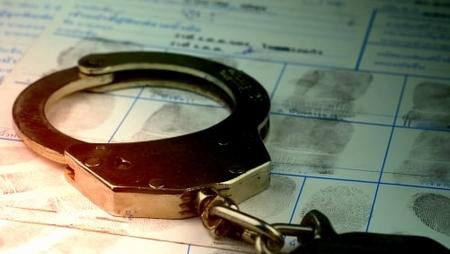Illinois Lawmakers Want to Give More Power to Police in Felony Crimes Process
 Under Illinois criminal law, when a person is charged with a serious crime, it is up to the prosecutor to take the legal steps to charge the accused with a felony crime. There are cases where a prosecutor will decide not to pursue felony charges, and the charges the police arrested the accused on are dropped, even if the police disagree with the prosecutor’s decision. However, a group of Illinois lawmakers are seeking to change all that and have recently filed legislation that would allow police chiefs to override the prosecutor’s decision.
Under Illinois criminal law, when a person is charged with a serious crime, it is up to the prosecutor to take the legal steps to charge the accused with a felony crime. There are cases where a prosecutor will decide not to pursue felony charges, and the charges the police arrested the accused on are dropped, even if the police disagree with the prosecutor’s decision. However, a group of Illinois lawmakers are seeking to change all that and have recently filed legislation that would allow police chiefs to override the prosecutor’s decision.
Felony Process
Under the current law, there is a standard process that every case must go through before a person can be charged with a felony. The first step to this process is the police investigation. If the police feel they have probable cause to charge a person they suspect of committing a crime, they will place them under arrest. In some cases, this involves obtaining an arrest warrant, while in other cases – such as during a traffic stop – the officer can arrest the individual right on the spot.
After they are arrested, the accused will have a bond hearing where they will enter their plea of guilty or not guilty, and the judge will decide if the defendant can be released on bond and how much that bond should be.
At this point, the prosecutor has two choices if they feel the charges against the accused are felony-level crimes. The first choice is a preliminary hearing. At this hearing, the prosecutor will present all the evidence they have to a judge. If the judge finds that there is enough evidence to warrant the charges, the defendant is formally charged.
The other choice the prosecutor has is to present the case to the grand jury. The grand jury consists of 16 people. The prosecutor will present their evidence to the grand jury, and they decide whether or not there is probable cause to formally charge the defendant. Unlike a jury in a criminal trial, the grand jury is not making the decision on whether the defendant is guilty or not, just whether there is enough evidence to charge them.
Proposed Law
The prosecutor also can make the decision not to charge the defendant if they feel there is not enough evidence to charge the defendant. Two recent examples of this in Chicago – the murder of a seven-year-old child and a gang shootout – resulted in the state prosecutor deciding not to pursue charges, despite suspects being arrested by police in both crimes.
Those decisions angered law enforcement and some lawmakers who felt that the prosecutor should have proceeded with the cases. In response to these decisions, the new law introduced would allow police chiefs to override the prosecutor’s decisions. Critics of the bill say that giving that kind of power to individual police departments would be setting a dangerous precedent. While the current bill, if passed, would only apply to Cook County police departments, the policy would likely end up becoming statewide at some point.
Contact a Joliet, IL Defense Attorney
If you have been charged with a felony, you could be facing serious jail time if convicted. Call McNamara Phelan McSteen, LLC at 815-727-0100 to schedule a free consultation with a skilled Will County criminal lawyer and find out how we can help defend you against these charges.
Source:
https://wgntv.com/news/chicago-news/illinois-republicans-push-legislation-to-override-prosecutors/
 815-727-0100
815-727-0100













